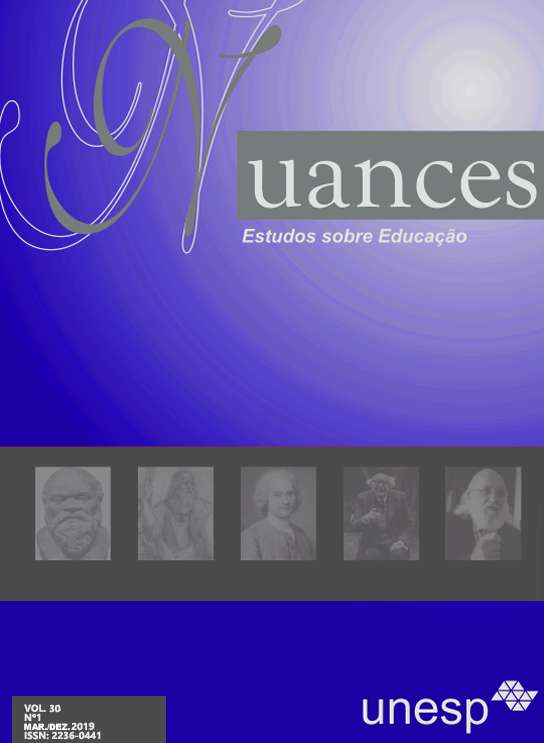FORMATION OF THE STUDENT'S PERSONALITY AS A DIDACTIC PROBLEM: CONCEPTS, PROJECTS, PRACTICE
DOI :
https://doi.org/10.32930/nuances.v30i1.7093Mots-clés :
upbringing, upbringing system, civil culture, integration of the subsystems of the school upbringing system, learning process, trainingRésumé
This paper presents the long-term research of the phenomenon of pedagogical upbringing as a didactic problem, as well as the ways and means of using the upbringing potential of the educational process in the formation of the basic structures of the modern student's personality - his worldview, culture, and experience. The authors define upbringing as the process of formation of basic structures of personality, and pedagogical upbringing – as the formally organized and curated pedagogical process aimed at formation of the basic structures of personality. This process is carried out through education and other activities appropriate to the modern education system. The defining characteristics of the pedagogical upbringing are its systematic nature and purposefulness.Based on the methodology of humanistic education, the authors propose the original solutions to the personality-forming tasks in the system of civic development of students through the work on cultural, ideological component of educational material at the lesson. The authors show their significant practical pedagogical results in collaboration with foreign and Russian scientists in the educational system in Tula region. They are: the strengthening of children and adult communities in the classroom and outside, development of the democratic bases of the educational process, overcoming the negative consequences of authoritarian upbringing, improvement of professional pedagogical culture of educators. Theoretical studies and experiments allowed influencing the development of innovative processes in educational institutions, improving the system of education management in the Tula region, and expanding the interdepartment cooperation in education. The paper describes the course of scientific research, its stages and results in detail. The used techniques are correlated with the goals and objectives of the study. Scientific novelty of this research is that it identifies the learning opportunities as a factor of the formation of the school upbringing system. It defines the principles and ways of integrating the subsystems of the school in a unified educational system, offers a theoretical didactic model of civil education of school students, and the formation of the culture of schools based on the principles of democratization and humanization of all processes. The practical significance consists in the fact that the research results can be applied to activities of different types of schools and to become the basis for their development and improvement. They also may aid the strengthening of the teaching community through enhancing the professional culture of teachers and leaders of the education system.Téléchargements
Téléchargements
Publiée
Numéro
Rubrique
Licence
Atribuição-NãoComercial
CC BY-NC
Esta licença permite que outros remixem, adaptem e criem a partir do seu trabalho para fins não comerciais, e embora os novos trabalhos tenham de lhe atribuir o devido crédito e não possam ser usados para fins comerciais, os usuários não têm de licenciar esses trabalhos derivados sob os mesmos termos.





